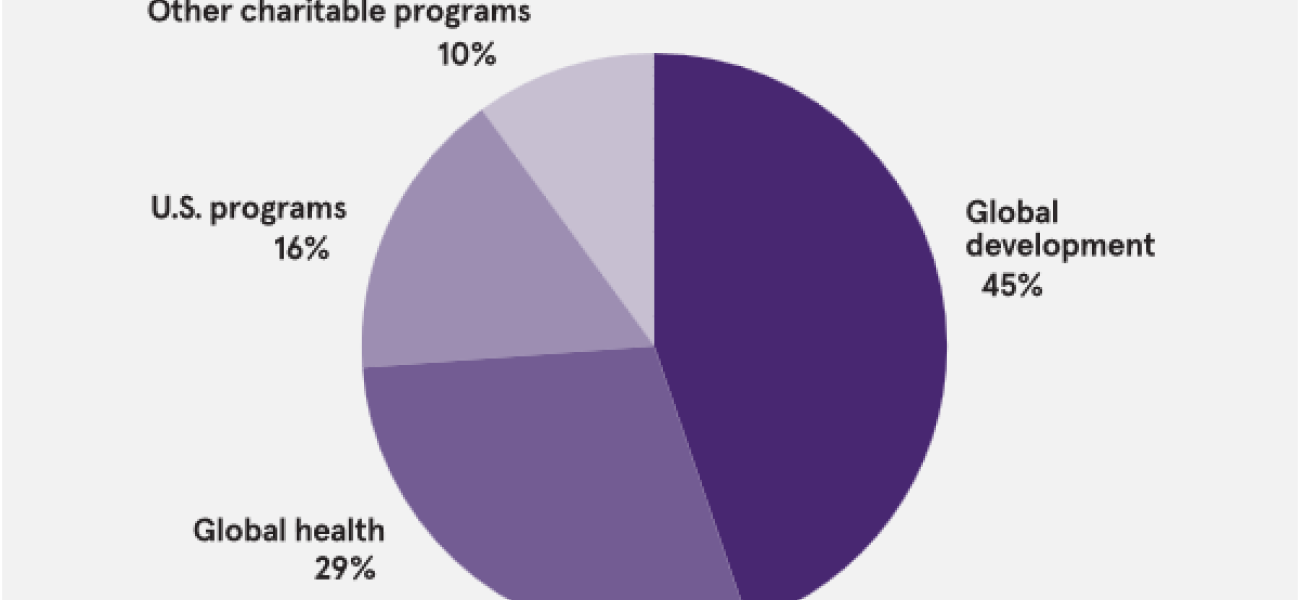Why we swing for the fences: Gates Foundation 2020 Annual Letter

Twenty years after starting our foundation, we’re just as optimistic about the power of innovation to drive progress.
By Bill and Melinda Gates: February 10, 2020
Reflecting on the first two decades of our foundation
When we started our foundation 20 years ago, the world was, in many ways, very different from the one we live in now. It was before 9/11, before the Great Recession, and before the rise of social media.
Then, as now, there was no shortage of worthy causes, and there was a good argument to be made for investing in many of them. We’d known for a while that we wanted to give away the majority of our wealth from Microsoft and use it to make people’s lives better. The challenge, of course, was how to do that in a meaningful and high-impact way.
As we were thinking about what our philanthropic priorities would be, we spent a lot of time meeting with experts and poring over reports. What we learned convinced us that the world should be doing more to address the needs of its poorest people. At the core of our foundation’s work is the idea that every person deserves the chance to live a healthy and productive life. Twenty years later, despite how much things have changed, that is still our most important driving principle.
“At the core of our foundation’s work is the idea that every person deserves the chance to live a healthy and productive life.”
There is no question that this new decade is beginning at a time of tremendous unrest and uncertainty around the world. But even in a moment as challenging as this one—in fact, especially in a moment like this one—we remain committed to supporting advocates, researchers, government officials, and frontline workers who are making a healthy and productive life possible for more people in more places.
For the last 20 years, our foundation has focused on improving health around the world and strengthening the public education system in the United States because we believe that health and education are key to a healthier, better, and more equal world. Disease is both a symptom and a cause of inequality, while public education is a driver of equality.
We know that philanthropy can never—and should never—take the place of governments or the private sector. We do believe it has a unique role to play in driving progress, though.
At its best, philanthropy takes risks that governments can’t and corporations won’t. Governments need to focus most of their resources on scaling proven solutions.
Businesses have fiduciary responsibilities to their shareholders. But foundations like ours have the freedom to test out ideas that might not otherwise get tried, some of which may lead to breakthroughs.
As always, Warren Buffett—a dear friend and longtime source of great advice—put it a little more colorfully. When he donated the bulk of his fortune to our foundation and joined us as a partner in its work, he urged us to “swing for the fences.”
That’s a phrase many Americans will recognize from baseball. When you swing for the fences, you’re putting every ounce of strength into hitting the ball as far as possible. You know that your bat might miss the ball entirely—but that if you succeed in making contact, the rewards can be huge.
That’s how we think about our philanthropy, too. The goal isn’t just incremental progress. It’s to put the full force of our efforts and resources behind the big bets that, if successful, will save and improve lives.
To be clear, the risks we take are different from the ones the true heroes of global progress take all the time: the health workers who brave war zones to get vaccines to children who need them, the teachers who sign up to work in the most challenging schools, the women in the world’s poorest places who stand up against cultural norms and traditions designed to keep them down. What they do requires personal sacrifices we never have to make—and we try to honor them by supporting innovations that might one day make their lives easier.
Altogether, our foundation has spent $53.8 billion over the last 20 years. On the whole, we’re thrilled with what it’s accomplished. But has every dollar we’ve spent had the effect we’ve hoped for? No. We’ve had our share of disappointments, setbacks, and surprises. We think it’s important to be transparent about our failures as well as our successes—and it’s important to share what we’ve learned.
...To read the rest of this article click here.